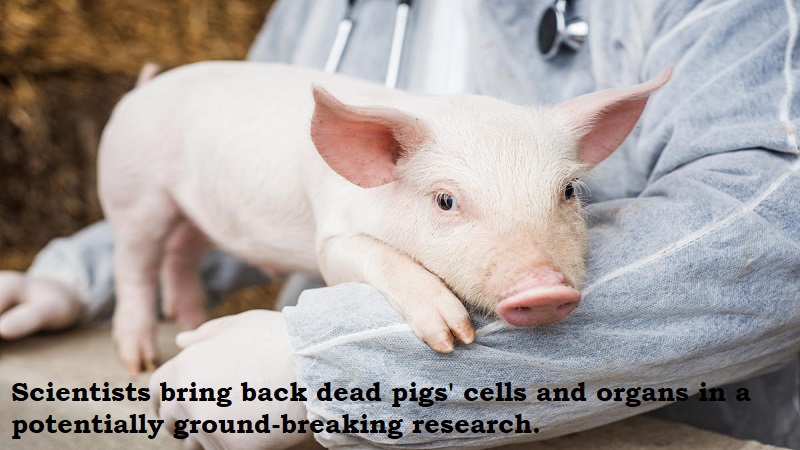
A team of researchers was able to revive pigs that had been dead for an hour in the most recent study, which could alter how we define death. In certain organs, they also succeeded in regaining cell function.
Researchers from Yale University claimed that they employed cutting-edge technology to restore cells and bring the animals’ cells back to life in a study that was published on Wednesday, August 3 in the academic journal Nature.
The research seems to represent a turning point for the transplantation of human organs, bringing up new avenues and opportunities. The researcher’s technology might prolong the life of organs even after death. For many millions of people around the world, it might be a blessing.
Co-author of the study and associate research scientist in neuroscience at Yale School of Medicine, David Andrijevic, stated, ‘There is a longer sequence of events; not all cells die at once. You have the ability to interfere, halt, and partially restore cellular function during this process.’
NYU Grossman School of Medicine assistant professor of bioethics Brendan Parent was taken aback. According to Parent, ‘My thoughts went to all the wild places we could go in 20 or 30 years,’ as reported by NBC News. Parent was not involved in the study.
Earlier in 2019, a US-based team was able to revive cells in pigs’ brains hours after they had been severed.
The same methodology employed in 2019 was expanded to include the full body in the most recent study by the researchers. They gave the anaesthetized pigs a heart attack to do the investigation. They used the procedure once the blood stopped flowing through the bodies.
The carcasses of dead pigs were pumped with a liquid that contained their own blood, a synthetic version of haemoglobin, and medications that shield cells and prevent blood clots. The protein in red blood cells that carries oxygen is called haemoglobin.
For the following six hours of the experiment, blood began to circulate once again, and numerous cells, including those in the heart, liver, and kidney, started to function.
‘These cells were working hours after they should not have been,’ said Nenad Sestan, a researcher at Yale University and the study’s senior author, to reporters. ‘What shows us that the demise of cells can be prevented.”
Such investigations raise the question of whether or not death is curable.

Post Your Comments